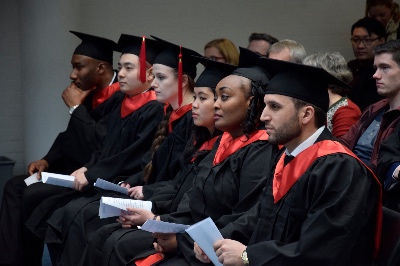Work after Study in Holland!
 International Students Continue Privileged Access to Dutch Labour Market in 2016
International Students Continue Privileged Access to Dutch Labour Market in 2016
The 2016 salary criterion for highly skilled migrants has just been published by the Dutch Immigration and Naturalisation Service (IND). Salary is considered the most important condition for a highly skilled migrant to qualify for a residence permit.
Highly skilled migrants
While highly skilled workers aged 30 years and older must earn a minimum gross salary of €4.240 per month (excluding 8% holiday pay) and those under 30 years €3.108, a separate arrangement applies to students who find work within a year of graduating. For such migrants a minimum gross salary of €2.228 per month is required as of 1 January 2016. This is up slightly from €2.201 last year.
Non-EU students are granted 12 months to look for employment after graduating in the Netherlands. This is the so-called zoekjaar or orientation year. International students have enjoyed privileged access to the Dutch labour market since 2007. Unlike in comparable countries such as Germany and Canada, the Dutch authorities primarily distinguish skilled labour from unskilled labour by looking at graduates' gross income.
Orientation year
During the orientation year, international graduates are free to work in any job without prior approval from the authorities. The orientation year ends precisely 12 months after graduation, so the IND recommends that graduates hand in their paperwork within 4 months of obtaining their Bachelor or Master degree. PhD students on the other hand can commence their orientation year anytime within 3 years of obtaining their degree from a Dutch institute of higher education.
International graduates can apply for permanent residency once they can prove 5 years of lawful residence along with sufficient Dutch language skills and knowledge about Dutch culture. Half of the years as a student in the Netherlands is counted against the 5-year residence requirement.
Source: IND
Source: The Expert Council of German Foundations on Integration and Migration
WUP 17/1/2016
by Anesca Smith